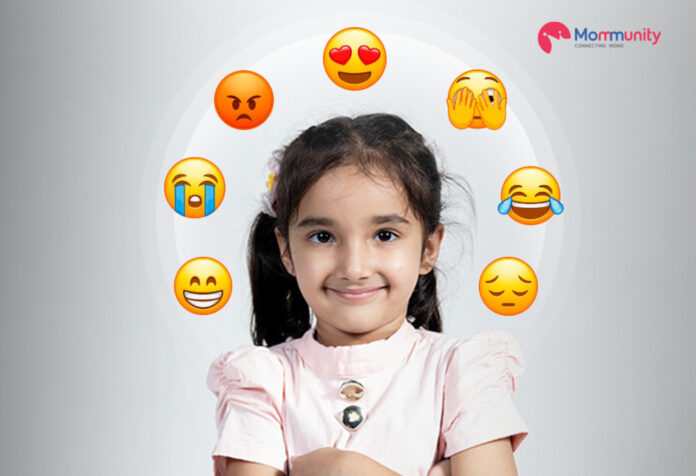Is your child aware of emotional intelligence? Emotional intelligence (EI) plays an important role in the healthy development of children. As a parent or educator, understanding and nurturing EI can remarkably influence a child’s ability to manage emotions, develop healthy relationships, and traverse the challenges of growing up.
In this blog, We will learn about the key aspects of emotional intelligence, its benefits in early childhood, and practical strategies for increasing EI in young children.
What is Emotional Intelligence?
Emotional intelligence refers to the ability to recognize, understand, manage, and use emotions effectively. It surrounds several skills:
-
Self-awareness
Recognizing one’s own emotions and their effects.
-
Self-regulation
Managing one’s emotions constructively.
-
Motivation
Harnessing emotions to pursue goals.
-
Empathy
Understanding, recognizing, and considering other people’s emotions.
-
Social skills
Managing relationships to move along with others.
The Development of Emotional Intelligence in Children
As children start to grow, they also start developing emotional intelligence from a very young age. As they grow, they learn to interpret their emotional experiences and those of others. The family environment, interactions with caregivers, and early education play a necessary role in shaping these skills.
4 Key milestones in the development of Emotional intelligence include:
1. Infancy
Infants are capable of recognizing primary caregivers and responding to emotions through facial expressions.
2. Toddler years
As they grow, as a toddler they begin to manage emotions and understand simple emotional expressions of others.
3. Preschool
As a preschool, they are more sophisticated in emotion management and recognition of a broader range of emotions.
4. School-age
When they are ready for school, they also develop an understanding of complex emotional scenarios and regulate emotions based on social demands.
Benefits of Emotional Intelligence
Emotional intelligence offers numerous advantages that facilitate a child’s development:
- Improved social interactions
Children with high EI are better equipped to form and maintain healthy relationships.
- Better academic performance
Emotional regulation helps children concentrate better and face academic challenges with a positive attitude.
- Enhanced mental health
EI skills are linked to lower levels of anxiety and depression.
- Conflict resolution
Children learn to negotiate and resolve conflicts more effectively.
Strategies to Increase Emotional Intelligence in Early Childhood
Improving emotional intelligence in children involves consistent efforts from parents, teachers, and caregivers. Here are practical ways to boost EI:
Emotion Coaching
- Recognize emotions
Help children understand their emotions by naming them.
- Validate feelings
Show empathy and understanding for their feelings.
- Guide them through emotional expressions
Teach children appropriate ways to express their emotions.
Modeling Emotional Intelligence
- Demonstrate emotional awareness and regulation in your behavior.
Children learn a great deal from observing adults.
Creating a Supportive Environment
- Promoting open communication about emotions at home and in school settings.
- Provide books and games that explore a range of emotions and appropriate responses.
Teaching Problem-Solving Skills
Motivate children to think of solutions when they encounter emotional difficulties, guiding them to consider the feelings of others in their responses.
Challenges and Solutions in Developing Emotional Intelligence
There are few benefits of developing Emotional Intelligence are clear, but several challenges may arise:
-
Lack of consistency
Inconsistent responses from adults can confuse children about the appropriate ways to express and manage emotions.
-
Cultural differences
Cultural norms can influence how emotions are expressed and understood.
Solutions include:
- Consistent teaching
Use consistent methods when teaching children about emotions.
- Cultural sensitivity
Be aware of and sensitive to the emotional expressions that are considered acceptable in different cultures.
The Final Note
We hope that this blog helps you understand that developing emotional intelligence in early childhood sets the foundation for lifelong personal and social well-being. By integrating the strategies outlined above, parents, educators, and caregivers can play an important role in shaping emotionally intelligent children who are better prepared for the complexities of life. From promoting healthier relationships to excelling academically and navigating emotional challenges, the benefits of strong emotional intelligence are profound and enduring.
As we continue to recognize the importance of emotional intelligence. It is necessary to implement consistent and culturally sensitive practices that cater to the diverse emotional needs of children. Promote ongoing dialogue about emotional intelligence in your communities and education systems to further support the development of this crucial skill set in our young ones.
By committing to these practices, we make sure that children do not just grow in knowledge and skill, but also in heart, ready to lead with empathy, resolve conflicts constructively, and pursue a fulfilling and balanced life.




